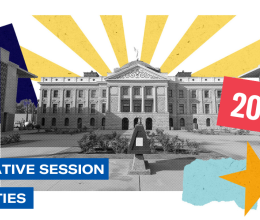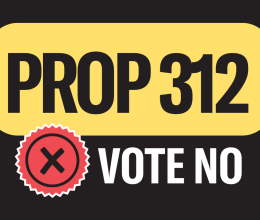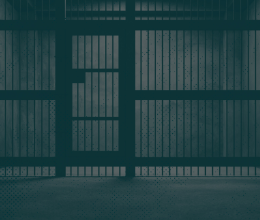
Glendale, Ariz. – Three Glendale residents filed a lawsuit alleging that the city’s panhandling bans violate their First Amendment rights to engage in constitutionally protected speech. The residents are seeking a preliminary injunction to stop Glendale from enforcing the unconstitutional ordinances. They are represented by the ACLU of Arizona, Public Justice, and the First Amendment Clinic at Arizona State University Sandra Day O'Connor College of Law.
The city of Glendale passed the two ordinances in October 2022, just months before the Phoenix suburb hosted Super Bowl LVII the following year. The Panhandling Ordinance forbids people from asking for money, donations, or other items of value in public – including on public transit, at a bus stop, from someone in a car, and several other places. The Street and Median Ordinance bans pedestrians on medians or in streets for any reason, including for the purpose of free speech and expression. Discussion during Glendale City Council meetings regarding the ordinances’ passage and subsequent enforcement have primarily targeted individuals who are assumed to be living in poverty or lack secure housing. People can be arrested, fined up to $2,500, and sentenced to jail for violating the ordinances, creating steeper barriers for those trying to overcome homelessness.
Like many places across the country, Maricopa County has seen a stark rise in homelessness and housing insecurity, with over 9,700 people experiencing homelessness during a Point in Time count earlier this year. It is common to see people holding cardboard signs requesting donations at intersections and highway interchanges in municipalities across the county.
Together, Glendale’s ordinances effectively ban a person from asking others for financial support in every publicly accessible location in the city, penalizing people experiencing homelessness and financial hardship. Federal courts have overwhelmingly recognized anti-panhandling regulations as unconstitutional, including an Arizona state law, a Flagstaff enforcement policy, and a similar ordinance in Phoenix.
“Criminalizing a person asking for help isn’t only unconstitutional, it’s wrong,” said Lauren Beall, staff attorney for the ACLU of Arizona. “Punishing someone with an exorbitant fine or putting them in jail when they can’t make ends meet perpetuates a vicious cycle that keeps people struggling and in poverty. Ordinances like these blatantly violate the First Amendment and make communities less safe.”
“Many of us will at one point need to depend on the generosity and compassion of our neighbors to make ends meet,” said Leslie Bailey, Director of Public Justice’s Debtors’ Prison Project. “Instead of trying to push poverty and homelessness out of public view by making it a crime to ask for help, cities like Glendale should be focused on helping people get out of poverty.”
“The First Amendment protects speech from government regulation even, and especially, when that speech is disfavored or unpleasant,” said Aaron Baumann, Assistant Teaching Professor with the First Amendment Clinic at ASU’s Sandra Day O’Connor College of Law. “Glendale cannot prohibit certain messages—like a request for money—without a compelling reason, and its desire to eliminate the perceived ‘blight’ of visible homelessness is far from sufficient.”
The ACLU of Arizona advances equity and dismantles systemic injustice by taking legal action, influencing policy, and mobilizing our communities to protect the civil rights, liberties, and dignity of all Arizonans.
Public Justice takes on the biggest systemic threats to justice of our time—abusive corporate power and predatory practices, the assault on civil rights and liberties, and the destruction of the earth’s sustainability. We connect high-impact litigation with strategic communications and the strength of our partnerships to fight these abusive and discriminatory systems and win social and economic justice. For more information, visit https://www.publicjustice.net/debtors-prison-project.
The First Amendment Clinic at the Sandra Day O’Connor College of Law at Arizona State University was established to protect and defend First Amendment interests and to teach a new generation of lawyers how to help individuals stand up for their First Amendment rights.





